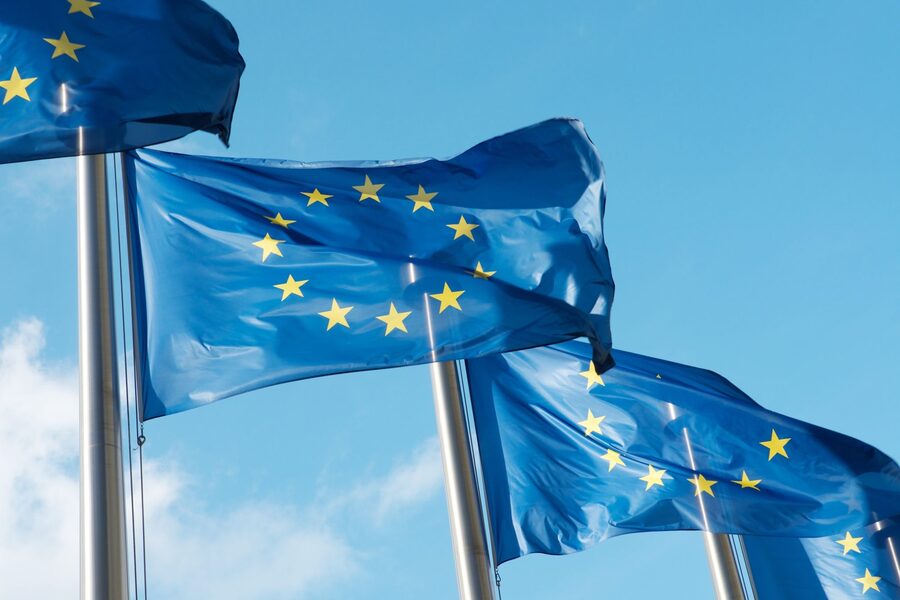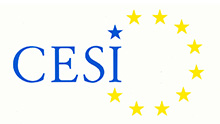
Our values and principles
1 – A citizen’s and European union

U4U is a civic-minded, European trade union that places employees’ participation at the heart of its work. We always work in a spirit of constructiveness and transparency. Staff are kept informed of our texts, proposals and results (e.g., the monthly newsletter “Le Link”, website), and can discuss them at our internal or external conferences and meetings.
European construction is at the heart of our raison d’être. We clearly link our union action to the European project. Through the regular publication of the think-tank magazine GRASPE, regular training courses and seminars on issues of European interest, and the documented elaboration of constructive proposals, we are constantly acting in the interests of the European project.
Our proposals are not only useful to the staff, but also to the institution, as one cannot go without the other.
2 – A union in favor of unity

Unity makes us stronger. We are fighting for staff unity, to create solidarity between all categories and professions.
3 – A union committed to diversity and equal treatment

We fight for a policy of diversity and inclusion in all its dimensions. Whether societal, social, or cognitive, inclusion values diversity and advocates an approach in favour of equal treatment for all European civil servants. Acknowledging the intersectionality of diversity means fighting against all forms of discrimination in the workplace and acting to unite the workforce.
U4U acts with concrete proposals to combat precarious situations, disparities, and discrimination.
What unites us is a common European culture of solidarity and respect for diversity.
4 – A union with a holistic approach to our business

We are opposed to opening up our Staff Regulations, which would lead, as in the past, to unfavourable reforms in all aspects of staff working conditions and remuneration. Further reform would weaken the European civil service.
We are striving for active, participative management of staff careers. The administration must resist the temptation to do more with less, respect each of our professions and recognize the quality of our work.
We also work to protect wages, health, social security, promotion, and pension conditions. We’re also here to help you with all the procedures you need effective support with. In doing so, we take care of all our working conditions.
We defend the statutory right to care for our children in crèches, kindergartens, nurseries, and European schools. We advocate quality educational provision for all, in all places of employment, with sufficient resources for its implementation.
5 – A union committed to effective, constructive social dialogue

High-quality social dialogue reflects a society governed by values of mutual respect and partnership. It is also in line with the recommendations of the Charter of Fundamental Rights of the European Union and the European Social Charter (principle 8).
We are calling for an improvement in the resources available to staff representatives, and a strong resumption of social dialogue with management.
The scope of social dialogue must be broadened to cover all aspects of our working life (including, for example, budgetary issues, mobility policy, buildings policy, European schools, etc.).
Social dialogue cannot be limited solely to “top-down” consultations between the administration and the Staff Committee and trade unions, or to “pulse surveys” launched by the administration to all staff. Staff expression must be made possible at all levels of the institution, in all departments and services, as close as possible to colleagues. In the same vein, the agenda for social dialogue should also be set by proposals from staff representatives, or by staff themselves, based on the conclusions of meetings at which employees express themselves directly and collectively.
The strength of our union team lies in taking responsibility based on a unique commitment, team spirit and merit, disconnected from any administrative reference to status (END, JPP, trainees, local agents, AC, AT, civil servant, ASN) and grades (AST-SC, AST, AD, GF).
Our Structure
President
Georges Vlandas
General Secretary
Jean-Paul Soyer
Deputy General Secretary : Annabelle Menendez Vallina
Secretary of the Board
Annabelle Menendez Vallina
Treasurer
Anne Gervaise
Vice Presidents
- Vice-president, Yves Caelen
- Vice-president for executive agencies : Bertrand Wert
- Vice-presidents for the European Parliament : Carmen Ortega Montero and Yavas Huseyin
- Vice-presidents for the EEAS : Bertrand Soret and VIiesner Frédérick
- Vice-president for all the Regulation Agencies : Gregor Schneider
- Vice-presidents for some Regulation agencies: Lucinda Carney (EUIPO), Paul Wouters (F4E), Julien Colinos (EASA)
- Vice-president for the Commission in Luxemburg : Corina Opreana
Members of the Board
- Alcaraz Fabienne
- Amaducci Giulia
- AURIOL Karine
- Brites Nunes Margarida
- Caelen Yves
- CARNEY Lucinda Jane
- Colinos Julien
- CRUZADO VANDENBERGH Yoann
- Gervaise Anne
- Juan Linares Victor
- Mairate Andrea
- Menendez Vallina Annabelle
- ORTEGA MONTERO Carmen
- Rizza Graziella
- SCHNEIDER Gregor
- Soret Bertrand
- Soyer Jean-Paul
- Spanoudis Evangelos
- STEPHANY Jean-Luc
- TUERCK Sabine
- Viesner Frédérick
- Vlandas Georges
- Vlandas Pénélope
- Wert Bertrand
- Wouters Paul
- Yavas Huseyin
Other officers
Litigation Committee
- Gomez Escudero Gérard
- Gruttadaurea Salvatore
- Lengenfelder Maria
- Vieilledent Catherine
Webmaster
U4U representatives
Contact them if you need help!
Partnership with USHU
We maintain frequent communication with other trade union organisations that defend the interests of staff within the European Union. In this respect, we have established a partnership with the USHU trade union
The threats to Europe. Our challenges

Faced with the profound changes and crises affecting our continent as a whole, the European civil service trade union movement can draw on a unique history and social relations within our institutions. The needs are considerable. We have the means to meet them together, to deal with the consequences for EU staff.
Talking about the challenges facing European civil service trade unionism at a time when the European Union lacks a political project, when the usual points of reference are crumbling, cannot be confined to listing general principles, recalling the difficulties of the period and the need to change course.
If we say that we are in a period of profound change, in which the various crises affecting European societies (from the global pandemic to the war in Ukraine, the energy crisis and its impact on the less privileged social classes, the geopolitical tensions in Ukraine and the Middle East, the rise of populism and the extreme right) are the result of the obsolescence of our modes of development and regulation, this forces us to project ourselves a little further into this changing world and to face the need to reinvent a European political project.
The European Union is the only regional organisation of nation states that has voluntarily adopted common rules, institutions and procedures. It has been able to respond to crises by creating the conditions for unity of action between its member states and institutions. In his memoirs, Jean Monnet said that “Europe will be made through crises and will be the sum of the solutions found to these crises”. Recent years have confirmed this saying. In a world that has become more uncertain and apparently more hostile, the European Union is asserting itself as a key player in overcoming these crises.
In the face of the COVID-19 pandemic, the response of the European institutions was more than up to the task, despite initial difficulties. Although the EU has no competence in health matters, the joint purchase of vaccines made it possible to achieve vaccination coverage within a few months, thus helping to normalise social and economic life. On this occasion, the European Union also broke a major taboo by borrowing a substantial sum of 750 billion euros for the first time to mitigate the economic and social consequences of the pandemic while speeding up the energy and digital transitions. This initiative, unthinkable only a few months ago, was finally welcomed almost unanimously.
Similarly, in the face of the invasion of Ukraine, the European Union was able to cut off almost all the Russian gas, oil and coal on which its economy was so heavily dependent in less than a year. And it has done so without suffering the disruptions to its energy supplies that might legitimately have been feared at the start of the conflict. The EU has also been able to respond forcefully in terms of sanctions and assistance to Ukraine, despite the powerful brake of the unanimity rule on foreign policy. Here, too, the EU has broken taboos by providing substantial military aid to a country at war and training Ukrainian soldiers on a massive scale. For the first time, it has even set up a mechanism for the joint purchase of ammunition to help Ukraine while replenishing European stocks.
However, there are reasons to be concerned about the future of European integration, as the European Union faces a triple threat in three areas its internal political dynamics, its geopolitical position and its economic and social situation.
- In terms of internal dynamics, we are witnessing the rise of the far right, largely because of the damage caused by several decades of deregulated globalisation and European policies essentially guided by the cult of competition and generalised free trade. This will be one of the main issues at stake in the European elections. Beyond its populist rhetoric, the far right offers few solutions to social inequality and growing poverty; on the contrary, it holds back the essential progress of European integration in terms of social rights, ecological transition, budget and common goods. It is therefore important for the political and social forces and the countries most committed to European integration to give a decisive boost to greater European integration, capable of correcting the many dysfunctions inherited from the neoliberal period. Even more so as the Russian invasion of Ukraine has raised the question of the enlargement of the European Union to include Ukraine, Moldova and some of the countries of the Western Balkans, and its corollary, the reorganisation of the Treaties to enable the European institutions to function more effectively.
- In geopolitical terms, Europe is committed to promoting its values, developing and strengthening democracy, the rule of law and respect for human rights and fundamental freedoms. However, it is struggling to find its place in a multipolar world – where multilateral and international rules are often violated – between American unilateralism, internal divisions, and increasingly difficult relations with a “global South” that is turning more towards Russia and China. Internally, the European Union is clearly not yet ready to take the necessary steps to become a “third pole”. It is stuck in a “fortress Europe” attitude on migration and is not prepared to increase its budget and thus its efforts to help developing countries, particularly in the areas of climate and energy.
- Finally, in economic and social terms, Europe’s development prospects are worrying, particularly in view of its industrial decline, especially in high-tech sectors (artificial intelligence, semiconductors, green technologies, biotechnologies, etc.), and its consequences for employment and social protection. Under pressure from American and Chinese competition, Europe has adopted an industrial policy framework in line with its doctrine of strategic autonomy. However, the European response remains inadequate in the face of the challenges. Measures have been announced, but in reality, the resources involved remain insignificant: no additional budget has been mobilised, and it has not been politically possible to renew the common debt in order to deal with the war in Ukraine and its consequences, or with the Green Deal, despite the considerable challenges it represents.
***********
At a time when the old ways of looking at things no longer work, our “European” and “civil” Union provides a forum for the exchange of ideas and analyses through our meetings, conferences, debates and reviews, and informal exchanges with policymakers, academics and experts on European issues. All these activities, which we carry out with dedication and rigour, contribute significantly to enriching our reflections and to building a solid foundation for the future.
A European trade unionism that promotes the general interest must identify points of convergence to chart a course of action that will enable us to achieve greater coherence in our responses to the challenges we face. The crisis has made situations more heterogeneous and expectations from our European institutions sometimes divergent. While some expect more solidarity, others fear that it will cost too much. There can be no progress without an inventory and a shared diagnosis of the diversity of situations within the European civil service itself.
This forces us to be innovative in our approach, to develop proposals for action and, above all, to listen more closely to the staff of the institutions. European integration requires a strong European civil service. We face many challenges, the most important of which is staff cohesion and unity. This is a top priority. Our proposals aim to strengthen the unity, competence, and efficiency of the civil service.
We must also fight relentlessly against all forms of extremism that lead to discrimination, xenophobia, and racism. The rhetoric of the populist and sovereign right has no place among the members of our Union and must be fought relentlessly. That’s why we have an important task ahead of us, first and foremost through citizens’ action in the European, national, and local elections in Belgium. But we must also integrate the principles of diversity and inclusion into our approach to action, so that they are taken seriously by European leaders.
Second, we need to pay particular attention to the major changes in the way our societies are managed and work, which is another priority area. We have launched a wide-ranging study of these issues[1] , based on a series of conferences and articles, to examine the economic, social, and societal issues involved and the immediate and longer-term implications for the future of the European civil service.
Finally, our action cannot be limited to the scope of the European civil service. It is resolutely geared towards an approach based on solidarity with populations affected by conflict, migrants and those left behind by society. Our solidarity with Ukrainian refugees is an example of the new initiatives we are keen to develop as part of our global approach.
Our Union is deeply committed to European integration. By defending a competent and independent European civil service, we work for a strong Commission, capable of proposing legislation and policies that meet the needs and aspirations of European citizens. In short, a trade unionism of action and reflection, innovative and resolutely pro-European, committed, and supportive.
Our texts – “Our Principles and Values” and “Our Guidelines” – illustrate the above and are a response to the current political context.
[1] See GRASPE n°48, January 2024 and n°49 (to be published in early March 2024)
